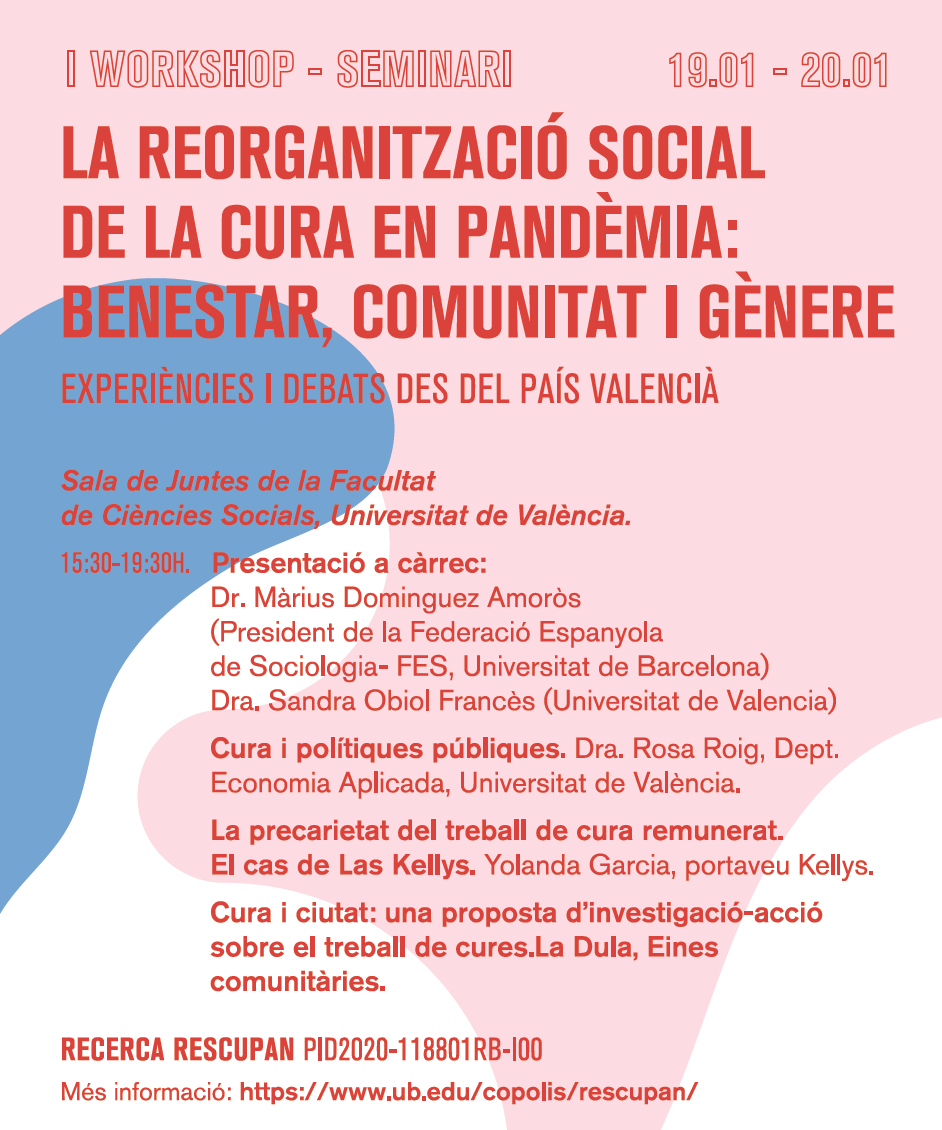Cuidar a mayores y dependientes en tiempos de la COVID-19 – a book by Dolors Comas and Silvia Bofill
The book “Cuidar a mayores y dependientes en tiempos de la COVID-19” recently published by the Tirant lo Blanch publishing house and written by the authors Dolors Comas and Silvia Bofill raises questions such as Why was care for the elderly and dependents relegated during the pandemic? or What happened in nursing homes so that … Read more
